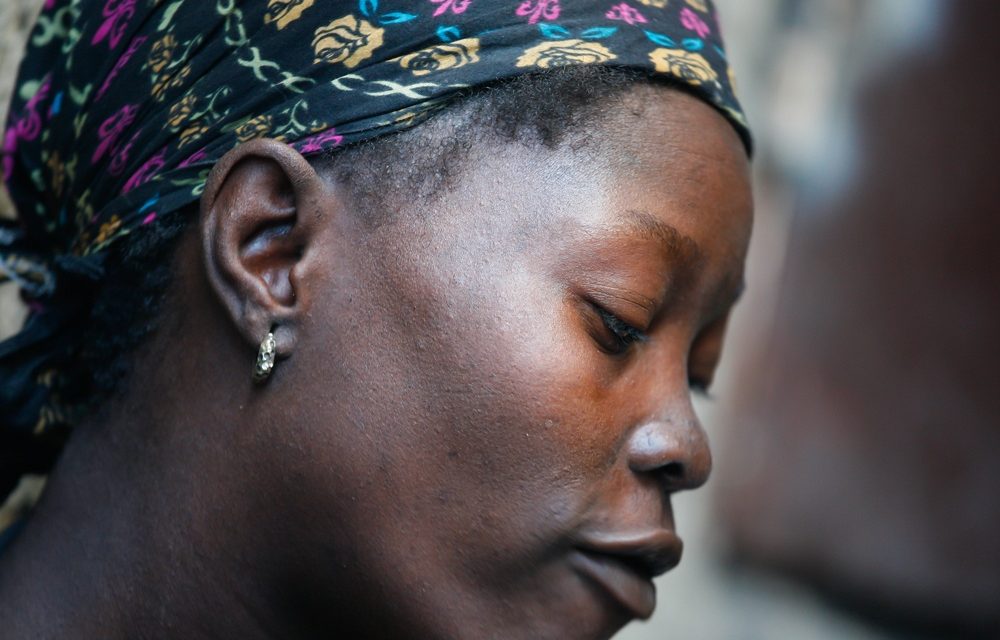Since a massive earthquake ravaged much of Haiti, nationals of the country have been allowed to live and work in the United States under a benefit called Temporary Protected Status (TPS). Their status, however, may soon be terminated by the Trump administration. The Department of Homeland Security (DHS) must decide the fate of Haiti’s TPS designation by about May 22, two months in advance of the date it is due to expire. Haiti provides the first test case of whether this administration is willing to renew a temporary immigration benefit to a single nationality.
Provided to nearly 50,000 Haitians in recent years, TPS allows nationals of Haiti who were already in the United States at the time of the earthquake to temporarily work in the U.S. and avoid deportation while Haiti recovers. It takes pressure off of the foreign country that would otherwise need to absorb the return of large numbers of their countrymen at a time when critical resources—such as food, housing, schooling, and jobs—are scarce. Instead, the status supports Haiti’s reconstruction through a healthy flow of remittances from those working in the United States. TPS also helps the United States; Haitian beneficiaries contribute nearly $280 million each year to the gross domestic product. TPS beneficiaries submit to rigorous background and security checks when they apply for and renew their benefits; those with serious criminal histories are denied TPS.
While the January 2010 earthquake that devastated Haiti may feel like a long time ago for many Americans, its legacy on the small island nation is ever-present. The 7.0 quake killed between 200,000-300,000 Haitians, injuring hundreds of thousands more and displacing 1.5 million people. Tens of thousands continue to remain displaced today. Recovery was greatly hampered by an unprecedented cholera epidemic that killed 8,800 Haitians and sickened three quarters of a million people as of December 2014. Additionally, Hurricane Matthew—the worst storm to hit the island in more than 50 years—compounded the existing crisis last October by destroying vast swaths of the south of Haiti, triggering a food crisis, and reigniting the spread of cholera.
Based on established law dating back to the Immigration Act of 1990 (IMMACT), the Secretary of Homeland Security can designate a country for TPS if there has been an environmental disaster, an ongoing armed conflict, or other extraordinary and temporary conditions that prevent nationals of a country from being returned there safely. With each designation made for no longer than 18 months at a time, the Secretary, with consultation from the State Department, regularly reviews country conditions and decides whether to extend or terminate the designation.
Extending or terminating a country’s TPS designation must not be a political act; the health and safety of a country’s nationals hang in the balance. Even now, with all things immigration-related a hot-button issue, there is bipartisan support for DHS to renew Haiti’s TPS designation. Florida Senators Marco Rubio and Bill Nelson, alongside House members from both parties in the Florida congressional delegation, have voiced their support for the extension. Representative Mia Love and Senators Schumer, Gillibrand, and Markey have likewise urged Homeland Security Secretary Kelly to extend TPS for Haiti.
While improvements have certainly been made since the 2010 earthquake, the conditions in Haiti remain dire. As recently as December 2016, the State Department had recommended extending Haiti’s TPS designation, calling into question how more recent internal deliberations at U.S. Citizenship and Immigration Services could reach far different conclusions. But for now, tens of thousands of Haitians in the U.S., as well as the communities in Haiti that rely on their financial support, are waiting with bated breath to see what their future holds.
By Alex Proimos.
FILED UNDER: Donald Trump, featured, Haiti


